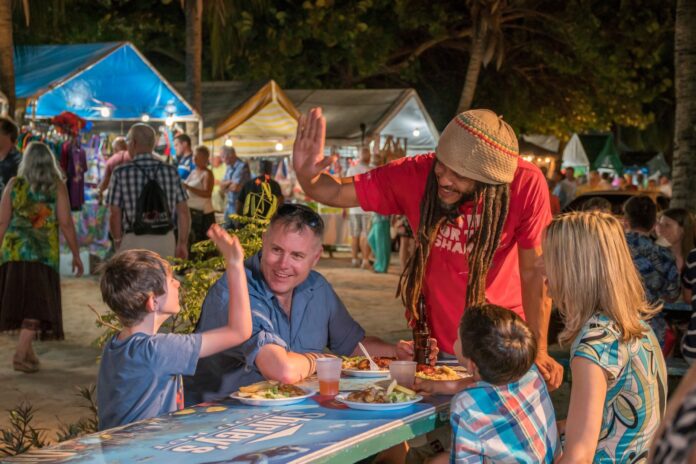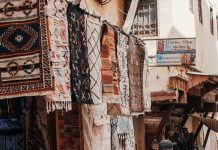By Angus Jones
I have sat and watched for years as the tourism sector in the Caribbean, in particular the accommodation sector, came under heavy weather from critics, who lashed out at it for being a mono-industry, who questioned its relevance to our Caribbean people, and who unleashed a litany of discourses on ‘diversification.’
Yet, when the weather was heaviest, when the forecast was for a total shutdown because of the COVID-19 pandemic, when the dark clouds of job loss and economic shutdown covered the land, it was the tourism sector that brought the light. It was the tourism sector that provided shelter from the rain, and it was the tourism sector that once more breathed life into economies on life-support.
Fate itself has intervened and I hope it has wiped the myopia from the eyes of the anti-tourism bunch; I hope it has taught all of us a lesson, that tourism is not something to be spurned, it is something we need to embrace. The irony is that while there are those who want to use the pandemic to denounce tourism as a ‘vulnerable industry’, tourism has proven to be the most resilient sector, and has bounced back to record numbers in no time at all.
From the IMF downward the tourism sector has been a favourite whipping boy, with the technocrats slamming the move to provide incentives that help the stakeholders invest and grow – stakeholders by the way who not only provide the biggest investments, but employ the highest number of persons because tourism is still, fortunately, a labour intensive industry. In fact, many are now pushing the narrative that COVID has provided the opportunity to divest away from tourism, but divest to what exactly?
Agriculture? Who will consume these products and can any island produce in the quantities and quality needed for export, and how do they deal with tariffs on these products. Saint Lucia learned that lesson the hard way with its banana industry. Ironically, it’s the hotels and local restaurants that provide the biggest market for farmers and fisher-folk in many islands.
Or maybe Business Process Outsourcing (BPOs). Yet some of the biggest requirements for things like call-centers for instance, are tourism stakeholders.
What about IT and Financial Services? All good, but how many people will they be employing, and what about the investment required to get the skills level of our people up to where they can command such jobs? Have islands invested sufficiently in their education infrastructure to allow this to happen?
The point I’m making is that tourism is the partner that will hold our hand and lead the way, not the enemy. Led by brave governments, and brave stakeholders, we saw the true power of tourism and the enormous potential it has for the Caribbean in recovering from the pandemic shutdown …it is one that is to be built upon, not turned away from.
Tourism can help drive the economic growth necessary to invest in key sectors such as educational infrastructure.
Tourism provides employment for a wide cross-section of our population; not just servers and housekeepers as the noisy detractors would have you believe, but for accountants, engineers, chefs, lawyers, architects, entertainers and landscapers ….each hotel is a mini-city.
Tourism consumes huge volumes of local products; vegetables, fish, meat and eggs …you name it.
In fact let me refer to an article I read recently in the Magnetic Media online news, which quotes the Executive Chairman of Sandals Resorts Adam Stewart saying that tourism is the greatest industry in the
world.
Stewart was recently telling members of the Association of Travel Agents that even when he got the call that the world was about to shut down, and Sandals would have to close its doors, he did not doubt for one minute the resilience of the region or the tourism sector, and never bought into the ‘false narrative’ that tourism was not going to rebound.
He should know, Sandals is one of the biggest tourism stakeholders in the region, a major employer, investor, foreign exchange earner and consumer of local products. As Stewart recalls his father, the late founder of Sandals Gordon ‘Butch’ Stewart, used to always say that when God was making the world he spent a little more time on the Caribbean. The region has been ready-made for tourism, and should be looking to capitalise on the surge in travel, not shy from it! As Stewart pointed out, these are exciting new times for travel and tourism, and he said Sandals 2.0 will be leading the way beyond the sun, sea and sand experience and will be seeking to immerse its guests in the culture of the islands, to interact more with the people of the islands.
Just imagine the hundreds of thousands of visitors who come here because of tourism and the market that opens up for local businesspersons, artisans and crafts-folk. If you think about it, it is an export market, without having to ship anything offshore and with no external tariffs on their products.
That is the power of tourism, and our tourism stakeholders are partners we should embrace and work alongside. Forget the diatribe from those who do not live in our islands, they view the world through academic lens, we must live the reality of it, and the reality of it is that there is no more beautiful, tourism-designed place on the planet!
This guest column was submitted as a Letter to the Editor
Read our ePaper. Fast. Factual. Free.
Sign up and stay up to date with Barbados’ FREE latest news.










